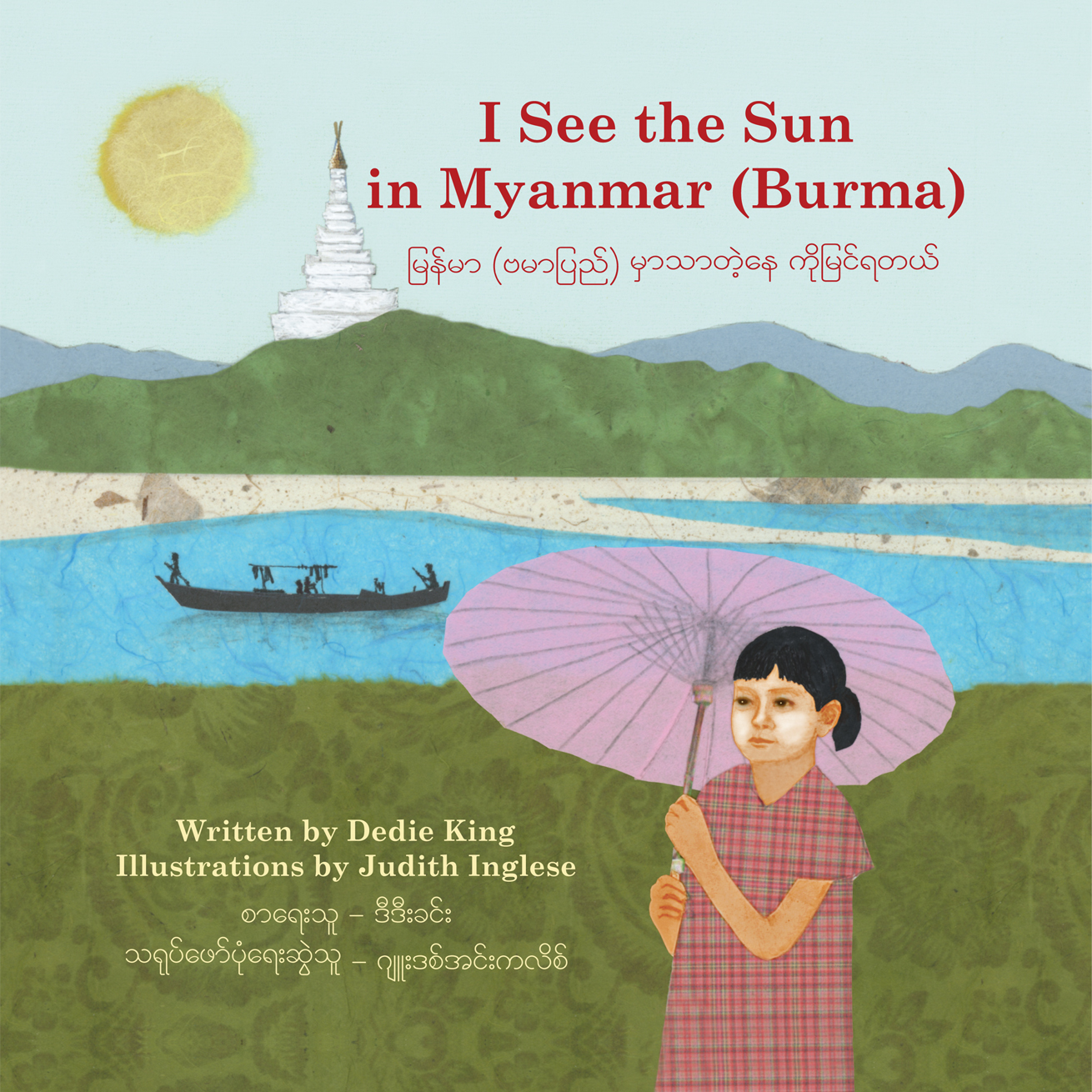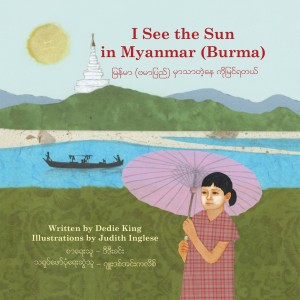22 Sep / I See the Sun in Myanmar (Burma) by Dedie King, illustrated by Judith Inglese, translation by PawSHtoo B. Jindakajornsri for the University of Massachusetts Translation Center

 Welcome to Myanmar, the latest stopover in the bilingual I See the Sun series from internationally-minded boutique press Satya House. This sixth installment again reinforces the series’ focus: as diverse as children’s lives might be in the details, their basic needs for family, nourishment, health, and happiness are the same throughout the world.
Welcome to Myanmar, the latest stopover in the bilingual I See the Sun series from internationally-minded boutique press Satya House. This sixth installment again reinforces the series’ focus: as diverse as children’s lives might be in the details, their basic needs for family, nourishment, health, and happiness are the same throughout the world.
Recognized until recently as Burma, Myanmar’s long, devastating history of British colonialism, Japanese wartime control, civil wars, and military occupations has left a country in need of expansive rebuilding. Myanmar is also home to one of the world’s most beloved activists, the 1991 Nobel Peace laureate Aung San Suu Kyi, who endured two decades of house arrest.
How appropriate, then, to choose a young girl here who begins and ends her day with prayers for peace: “May all beings live with ease …,” she repeats as part of the “loving-kindness chant” that is metta, a Buddhist concept of “planting the seeds of compassion in one’s heart by saying phrases of loving kindness to those around us.” Aye Aye lives near the famed Irrawaddy River, where her father and brother will spend the day fishing. At home, she breakfasts with her mother and grandmother, then shares their meal with the monks who appear outside. She accompanies her mother to the local hospital where her mother is a nurse – clearly this is 21st-century family, as the mother has a modern career, while the fisherman father practices the more traditional trade!
After lunch, Aye Aye plays with a friend before helping to serve tea to a visiting guest. Evening welcomes her father and brother home, when the family can enjoy their evening meal and later a prayer before drifting off to sleep.
Although Aye Aye’s family is blessed with a peaceful life, author Dedie King does not ignore the possible dangers beyond the village: worry is not far from the everyday life of the afternoon visitor whose son “lives far away in the big city.” The context-rich “About Myanmar (Burma)” at book’s end provides further insight into the country’s violent past with a glimpse at some of the current challenges as it transitions toward a fledgling democracy.
The concept of metta, regardless of religious affiliations or backgrounds, is an idea we can all heed. Just as Aye Aye repeats the words throughout her day, we might learn to do the same. No harm, only hope – and loving-kindness, too:
May I/you be safe.
May I/you be happy and peaceful.
May I/you be healthy and strong.
May I/you live with ease.
Readers: Children
Published: 2013
